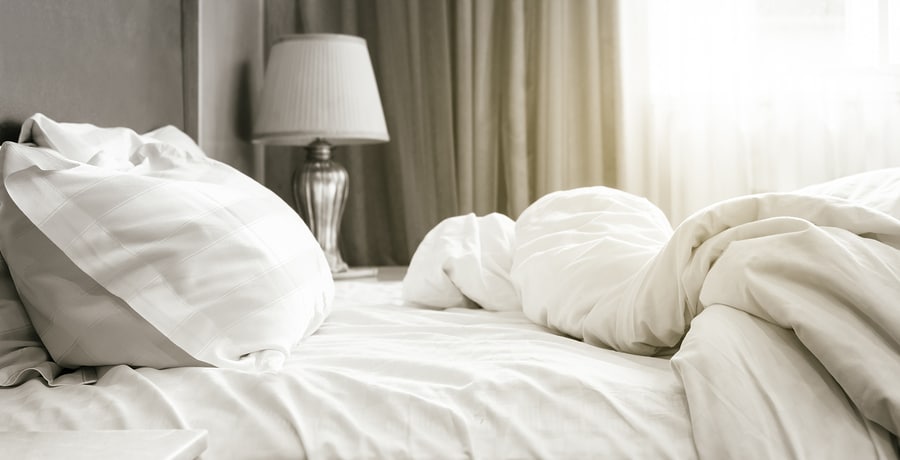When it comes to your nightly snooze session, you've probably heard plenty about the ideal amount of shut-eye to aim for. But how much sleep do you need to be getting in order to feel your best? Here are some helpful tips and tricks to help you decide.
Remember Everyone Is Different
Sleep is actually a pretty individualized thing. In fact, it's a lot like food. Sure, there are certain foods—fresh fruits and vegetables, whole grains, healthy fats, and lean proteins—that are generally recognized as good for your body. But there's no one-size-fits-all diet that's right for everyone. You might love Greek yogurt and fruit for breakfast because it helps you stay full, and you feel foggy after eating anything with wheat. However, someone else might feel more satisfied with a morning meal of scrambled eggs, and have no issues with eating whole-wheat bread or pasta.
With sleep, it's no secret that everyone has a certain number of hours they have to get in order to be at the top of their game in the morning. But the amount of time that you need to spend in dreamland might not be exactly the same as someone else's. If you're more active or your job is highly stressful, you may need more sleep to feel fully functional than someone who's sedentary during the day. Since you use more energy throughout the day, it's normal to need more time to recharge at night.
Age can have an impact, too. Most of us need more sleep in our teens and early-twenties than in our mid- to late-twenties and beyond, according to the National Sleep Foundation. And by the time you reach your mid-sixties, you might find that you need even less shut-eye than before.
Listen to Your Body
So how exactly can you figure out the right amount of sleep for you? Just like you pick—or avoid—certain foods based on how they make you feel, you'll learn a lot about your sleep needs by listening to your body. Consider these simple questions, which can tell you a lot about whether your sleep game is on point—or if it could use a bit of work.
- Do you find it relatively easy to wake up in the morning, or are you tempted to hit the snooze button over and over?
- Do you feel like you generally have enough energy to tackle your day, or do you regularly find yourself feeling tired or fuzzy?
- Do you usually fall asleep as soon as your head hits the pillow, or after a couple minutes?
If you have a hard time getting up in the morning, feel zonked throughout the day, and fall asleep at night in an instant, you might not be getting enough sleep. Experiment with going to bed a bit earlier and see what happens. Do you feel more awake and energized with an extra 30 minutes of snooze time? Or do you need another full hour or two in order to really feel good?
If you're lucky enough to have an easy time waking up, you feel good throughout the day, and you fall asleep within a couple of minutes, chances are that you're probably getting the amount of sleep that's right for you.
So how much sleep do you need? Remember, when it comes to figuring out the answer, feeling your best is more important than sticking to an official recommended number. Take some time to figure out what really works—and when you find your sweet spot, make an effort to stick with it. Your body will thank you.
